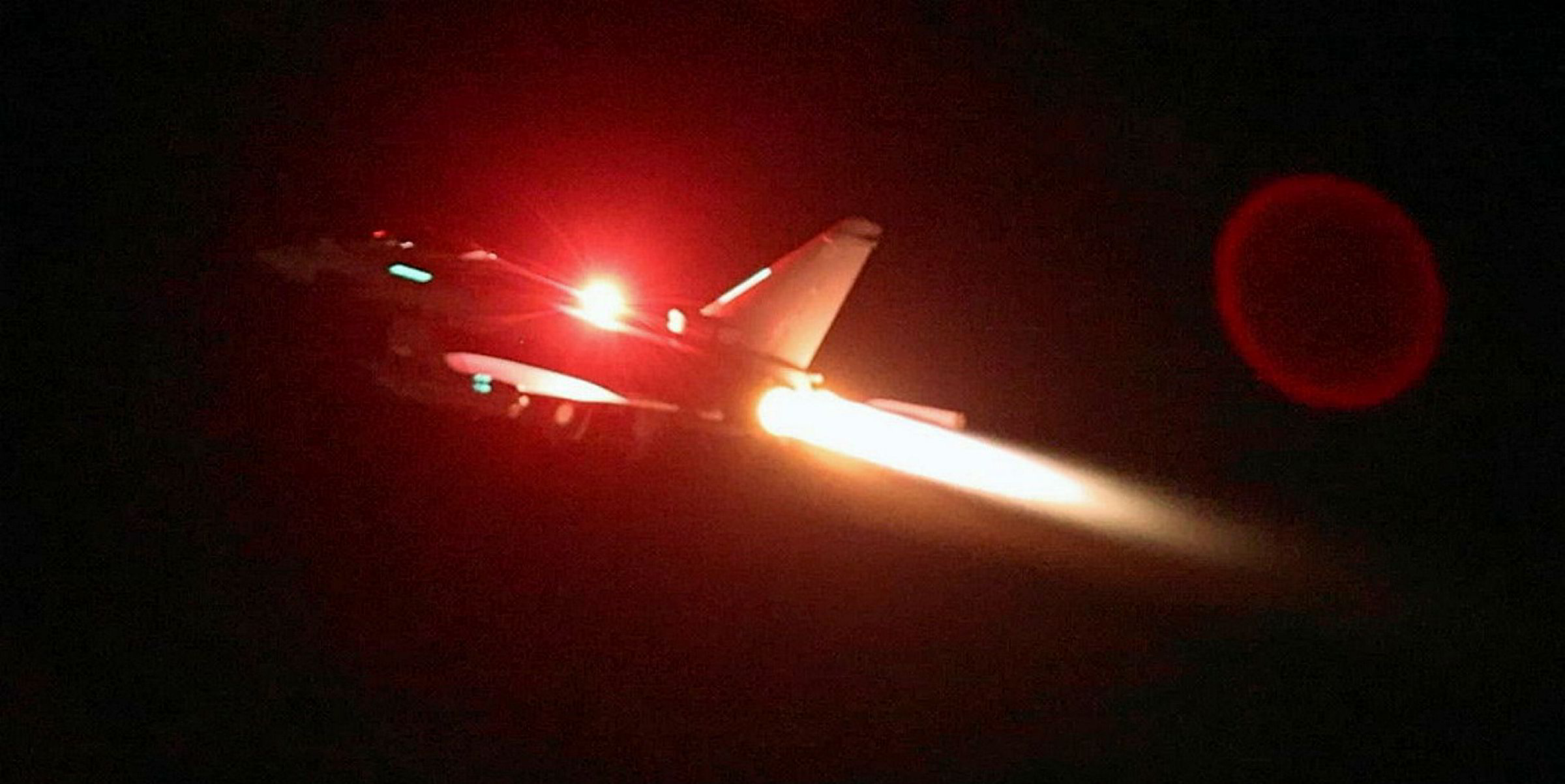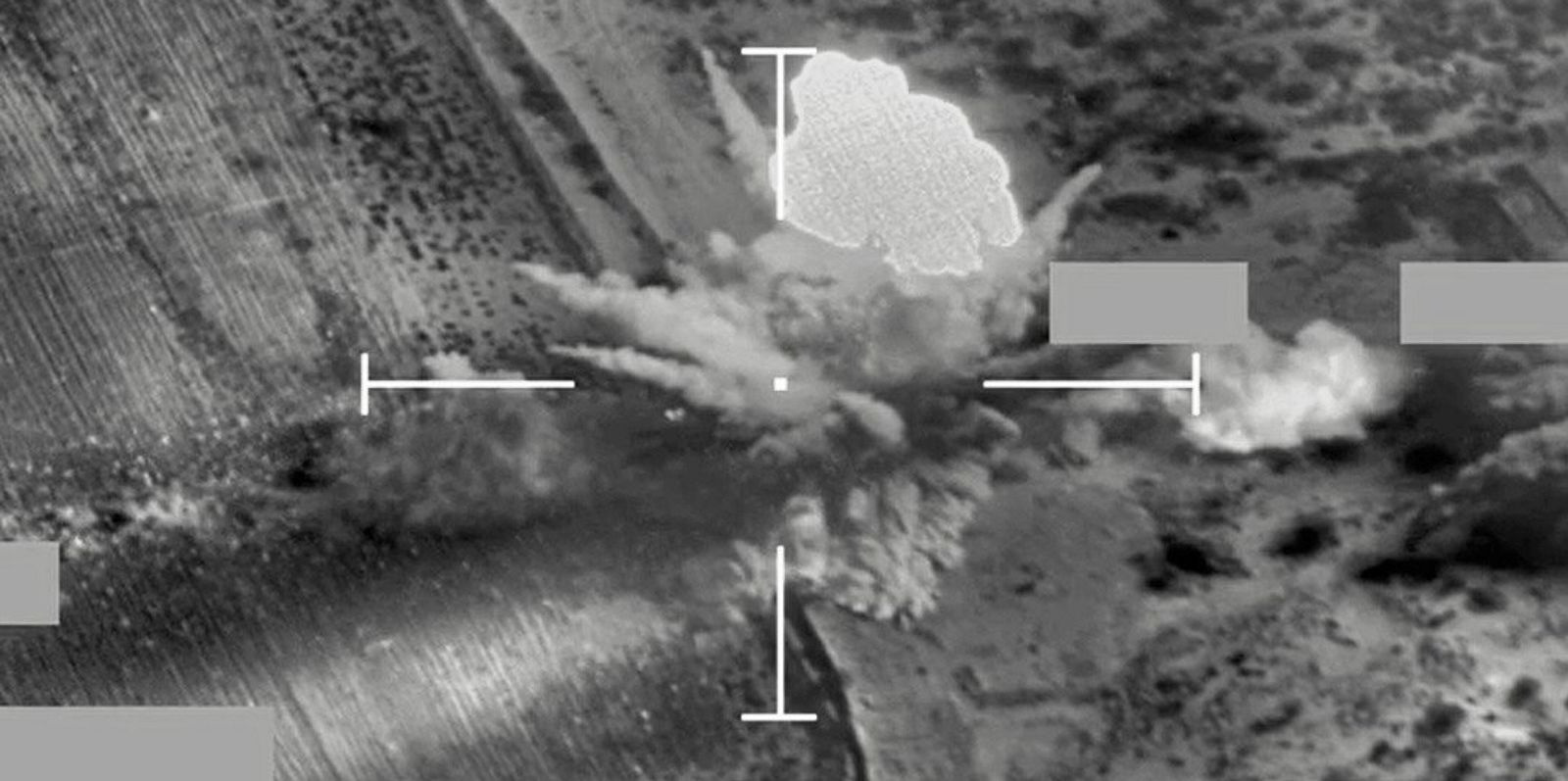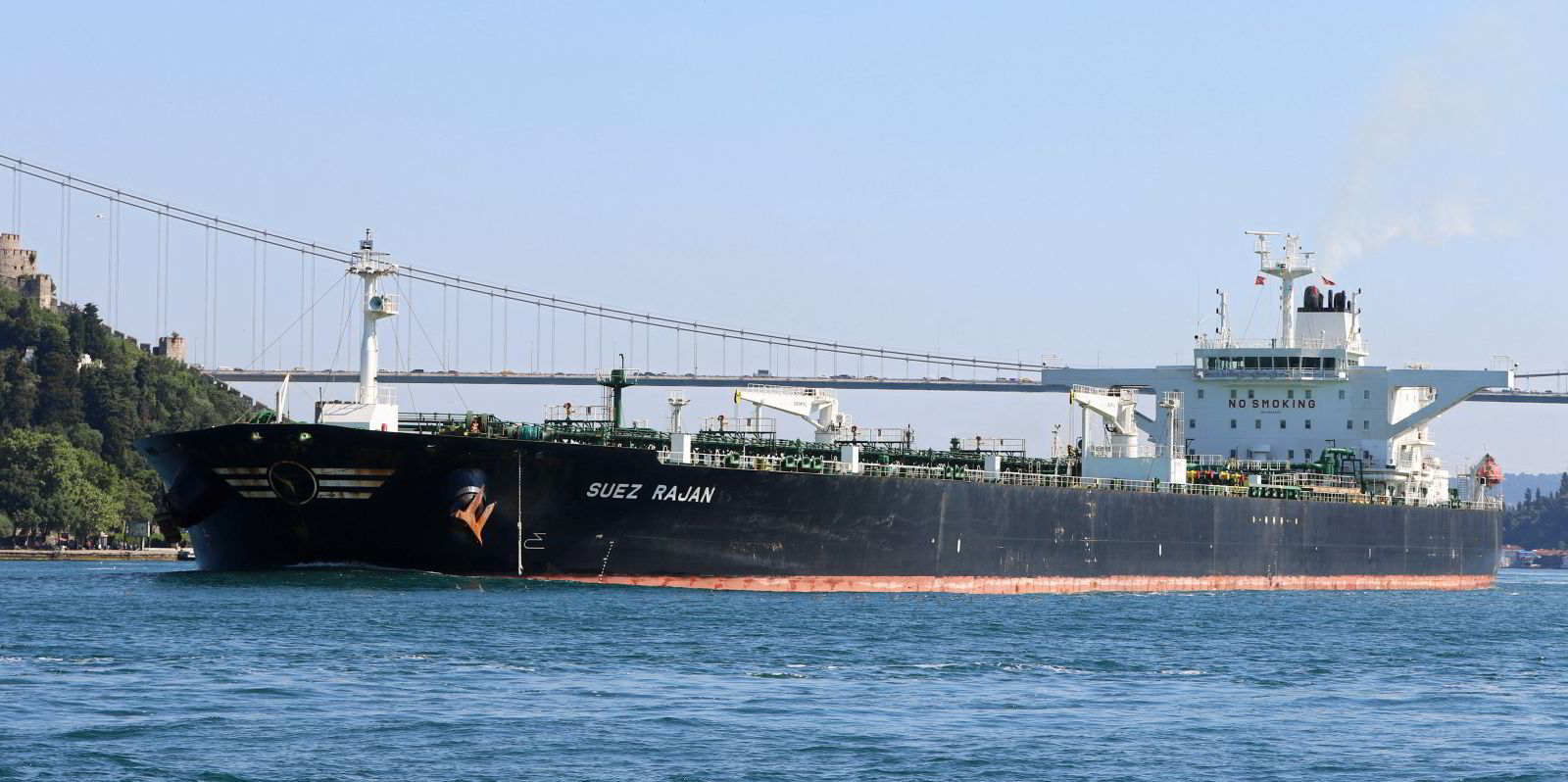The US and UK launched strikes against Houthi targets in Yemen early on Friday.
Carried out with support from Australia, Canada, the Netherlands and Bahrain, the assault was aimed at degrading Houthi capability to attack warships and commercial vessels in the Red Sea, thr US Central Command (CENTCOM) said in a statement.
“This multinational action targeted radar systems, air defence systems and storage and launch sites for one-way attack unmanned aerial systems, cruise missiles and ballistic missiles,” CENTCOM said.
The strikes began at 02:30 local time at the Houthi-held capital of Sana’a, as well as at the port of Hodeidah and Bani in north-west Yemen.
Attacks had ceased by dawn on Friday but the US Department of Defence said that the US, “if necessary … will take follow-on actions”.
“We will not hesitate to defend our forces, the global economy and the free flow of legitimate commerce in one of the world’s vital waterways,” it said.
Ambrey Analytics, a maritime security firm, said a total of four governates were hit in Houthi-controlled territory of Yemen.
CNN reported that the strikes were carried out by fighter jets and Tomahawk missiles fired from naval vessels.
The strikes are the first since the Iran-backed militant group began targeting merchant ships in and around the Red Sea before turning on the naval vessels deployed to the region to protect them.
Four Royal Air Force Typhoon FGR4s, supported by a Voyager refuelling aircraft, used Paveway IV guided bombs to carry out strikes on two sites, including a facility in Bani that was used to launch drones, the UK Ministry of Defence said.
UK aircraft also targeted an airfield at Abbs that was used to launch cruise missiles and drones.
“In planning the strikes, particular care was taken to minimise any risks to civilians, and any such risks were mitigated further by the decision to conduct the strikes during the night,” according to the ministry.
“The detailed results of the strikes are being assessed, but early indications are that the Houthis’ ability to threaten merchant shipping has taken a blow, and our commitment to protecting the sea lanes, through which some 15% of the world’s shipping passes and which is vital to the global economy, has been amply demonstrated.”
Late on Thursday, multiple media outlets reported that the UK cabinet convened a meeting to discuss the crisis as Britain prepared to take part in the operation.
US officials, who spoke on condition of anonymity, told the New York Times that the Netherlands, Australia, Canada and Bahrain would be participating in the operation with logistics, intelligence and other forms of support.
Blood spilled in the Red Sea
The strikes come more than a week after a US-led coalition of 14 nations said the Houthis would face consequences if it did not halt attacks on merchant ships. On 31 December, US forces already killed 10 Houthi fighters who were trying to board an AP Moller-Maersk container ship in the Red Sea.

But the Houthis defied that ultimatum, launching a swathe of kamikaze drones and missiles into Red Sea shipping lanes on Tuesday, though Ambrey Analytics said on Thursday that they appeared to have targeted navy ships rather than merchant vessels.
Another missile fired from Houthi territory earlier on Thursday marked the 27th attack on commercial shipping lanes since the Iranian-backed militant group began to target vessels in November in response to Israel’s war with Hamas in Gaza.
The attacks have forced several shipping companies to avoid the Suez Canal, disrupting global supply chains.
Houthi army leader Abdul-Malik al-Houthi threatened to respond to any US-led attack, according to the New York Times.
“We, the Yemeni people, are not among those who are afraid of America,” he said in a televised speech. “We are comfortable with a direct confrontation with the Americans.”

The rebel group will continue targeting Israeli-related ships in the Red Sea, Iranian media cited Houthi spokesman Mohammed Abdulsalam as saying early on Friday.
Another senior Houthi official appearing on al-Jazeera said that the US and the UK must be “ready to pay a heavy price”. Iranian media reported that the Houthis already launched ballistic missiles against at least one coalition warship in the Red Sea in response to the US and UK strikes.
Last month, al-Houthi also warned countries against joining US-led operations against Yemen.
“Don’t get involved … don’t risk the security of your maritime ships,” he said in a televised speech on 20 December.
The Houthis have focused their attacks on vessels with Israeli connections, although many have been targeted with no known link to the country.
Ambrey said early on Friday after the attacks against the Houthis began that these threats would include at least the US and UK. “Vessels with these affiliations are advised to follow Coalition warship instructions.”
The maritime security firm also advised merchant ships in the region to report any sightings of drones or missiles.
“In case of debris, it is advised to minimise crew members on deck and to have essential bridge manning only,” Ambrey said.





